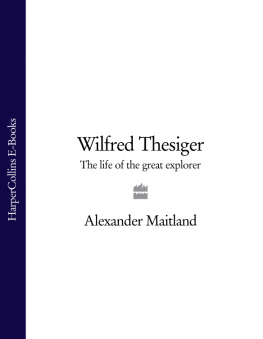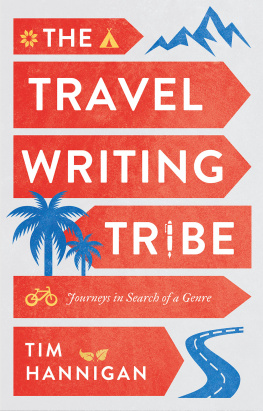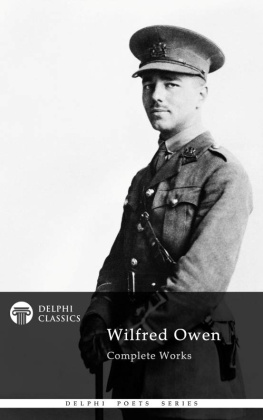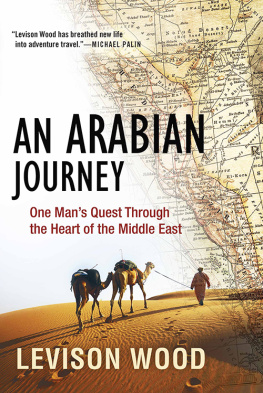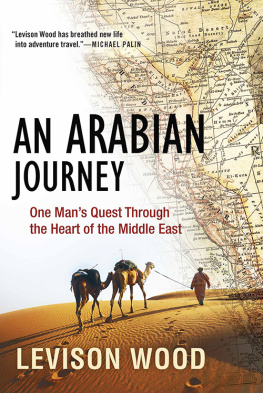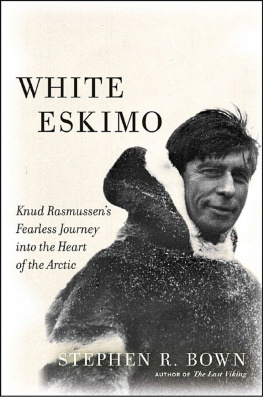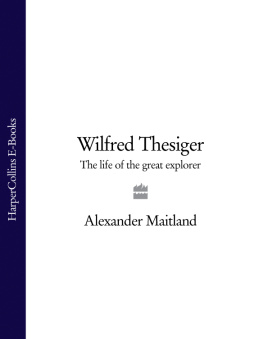For Margaret

Even now, after so many years, I can still remember Wilfred Thesiger as he was when I first saw him, was how Thesiger suggested I might begin his biography. To this he had added: The rest is up to you.
I met Thesiger for the first time in June 1964 at his mothers top-storey flat in Chelsea. He was then aged fifty-four. He was sunburnt, tall, with broad shoulders and deep-set grey eyes. As we shook hands I noticed the exceptional length of his fingers. He wore an obviously well-cut, rather loose-fitting dark suit. I remember clearly that he smelt of brilliantine and mothballs. He spoke quietly, with an air of understated authority. His voice was high-pitched and nasal; even by the standards of that time, his rarefied pronunciation seemed oddly affected. He had a distinctive habit of emphasising prepositions in phrases such as All this was utterly meaningless to me. He moved slowly and deliberately, with long, ponderous strides; yet he gave somehow the impression that he was also capable of lightning-fast reactions. Later, I heard that he had been a source of inspiration for Ian Flemings fictional hero James Bond. Whether or not this was true, Thesiger, like Bond, was larger than life; and like Bond, he appeared to have led a charmed existence.
He introduced me to his mother, Kathleen, who had retired early to bed. Cocooned in a woollen shawl and an old-fashioned lace-trimmed mobcap, she lay propped up on pillows, with writing paper and books spread out on the bedcover within easy reach. Thesiger left us alone for a few minutes while he carried a tray with a decanter of sherry and glasses to the sitting room. It was then that his mother offered me the unforgettable advice: You must stand up to Wilfred.
Thesiger preferred to sit with his back to the window, in the dark shadow of a high-backed chair. At intervals he fingered a string of purple glass worry beads that lay on the small table at his elbow. He talked energetically and fluently in reply to enquiries, but he himself asked few questions, and instead of taking up a fresh theme he sat quietly, staring at me, until I questioned him again. When I could think of nothing to say, or to ask, he reached again for the purple beads. Meanwhile he scarcely had touched his thimbleful of sherry.
His mothers flat, to which Thesiger returned for two or three months every year, was like a catalogue raisonnee of his life and travels. Danakil jilis in tasselled sheaths hung beside framed black-and-white Kuba textiles from the Congo. There were silver-hilted Arab daggers and ancient swords in silver-inlaid scabbards. Medals honouring Thesigers achievements as an explorer and, in his youth, as a boxer were displayed in velvet-lined cases. A portrait of Thesiger painted in 1945 by Anthony Devas hung on the right of the sitting room fireplace. On the wall opposite, three tall glass-fronted cabinets held part of his collection of rare travel books devoted to Arabia, Africa and the Middle East. His mother had brought the cabinets to London in 1943 from their former home in Radnorshire. Thesiger commented proudly: I cant begin to imagine how my mother knew they would fit into this room. It was remarkable how she did this. But, there again, my mother is a very remarkable person.
In a cupboard in Thesigers bedroom were stored the sixty or more landscape-format albums of black-and-white photographs which he often described as his most cherished possession. As far as I remember he did not produce these albums during my first visit, but over the years I became very familiar with the wonderful images they contained. Only some time later did he show me his collections of travel diaries, notebooks and annotated maps describing his journeys. Not until some years after she had died did he encourage me to read letters he had written, many from outlying places, to his mother, who to her eternal credit preserved them with care, as she had preserved those Wilfreds father had written a generation before.
One memory stands out from the vaguer recollections of that first visit. To my surprise, as I was leaving Thesiger took out a pocket diary, consulted it for a moment and said: If youve nothing better to do next This unexpected invitation marked the beginning of a friendship that lasted for almost forty years.
I have heard it said that Thesiger was very straightforward, uncomplicated, easy to get to know and to understand. To some people he may have appeared like that; and of course, everyone who met him (whether they knew him intimately or hardly at all) received a slightly different impression. But even his oldest friends, who had known him since his schooldays, could not quite agree about certain seemingly paradoxical aspects of Thesigers character and temperament. Most of them, however, accepted that he was a veritable maze of contradictions; and, if the truth be told, in some ways his own worst enemy. Like the Bedu of the Arabian desert, he was a man of extremes. He could be affectionate and loving (for example towards his mother), yet he was capable of spontaneous, bitter hatred; he was either very cautious or wildly generous with his money and possessions; he was normally fussy and meticulous, but he could be astonishingly careless and foolishly improvident; he relished gossip, yet was uncompromisingly discreet; his touching kindnesses contrasted with sometimes appalling cruelty. He denied being possessive and criticised others who were, including his friend the writer T.H. White, and his own mother, who was by nature possessive as indeed he was himself. Being possessive, and yet desperately needing to be possessed, was part of Thesigers chronic sense of insecurity, which resulted from traumas he suffered during his childhood in Abyssinia and England. His vices were fewer, less extreme and yet more conspicuous than his many virtues. The greatest of these immense and selfless bravery, compassion, determination, integrity and creative energy enabled him to achieve his outstanding feats of exploration and travel, and to record them with a matchless brilliance in his photography and in his writing.
Thesigers craggy features and tall, gaunt frame were a gift for the painter or sculptor. His earliest adult portraits were sketched in pencil on menu-cards by (probably inebriated) friends at Oxfords bump suppers. Gerald de Gaury drew him in 1943, and Anthony Devas painted his portrait in oils at the end of the Second World War. In 1953 Fiore de Henriques sculpted Thesigers head in bronze, a powerful image, like Devass excellent portrait, which nevertheless romanticised him. In contrast, three portraits painted by Derek Hill in 1965 showed Thesiger, then aged fifty-five, very much as I had first seen him, and indeed as he really was. Although he portrayed the man who had survived dangerous journeys through Abyssinia, the Sahara and Arabia, a decade hunting African big game, and four years intense fighting in the war, Hill also captured a defensive, shy, vulnerable side of his sitters complex personality, a side that Thesiger normally kept hidden.
In old age Thesiger was painted, sculpted and photographed by artists and photographers fascinated by his achievements and his weathered features, whose creases, folds and crenellations by then resembled ancient tree-bark, or elephants hide, or rock, more than the surface texture of an ordinary human being. These later portraits celebrated him as the patriarch of modern exploration and travel, and as a living legend to which they gave substance. Only when his visitors were greeted by a greyhaired, elderly gentleman in a dark suit or country tweeds did many of them realise how, in his books, Thesiger had been frozen in time, like the age-defying images of tribal men, women and children he had photographed more than half a century before. Although Thesigers last portraits cast him in old age, the finest bridged a widening gap between his wander years and the present; and to his increasingly iconic status they paid due and worthy homage.
Next page
